Michaela Vidláková was born to Irma and Jiří Lauscher in Prague on December 30, 1936. Her mother was a teacher in the Jewish elementary school in Prague´s Jáchymova Street, her father was employed in various companies, working mostly in clerical jobs. Both parents, supporters of Zionism, were actively involved in preparatory courses for emigration to Palestine, where Jiří Lauscher had lived for five years before he set up home in this country; he planned to go back and settle with his wife and daughter down in Palestine. However, the Lauscher family did not manage to leave in time.
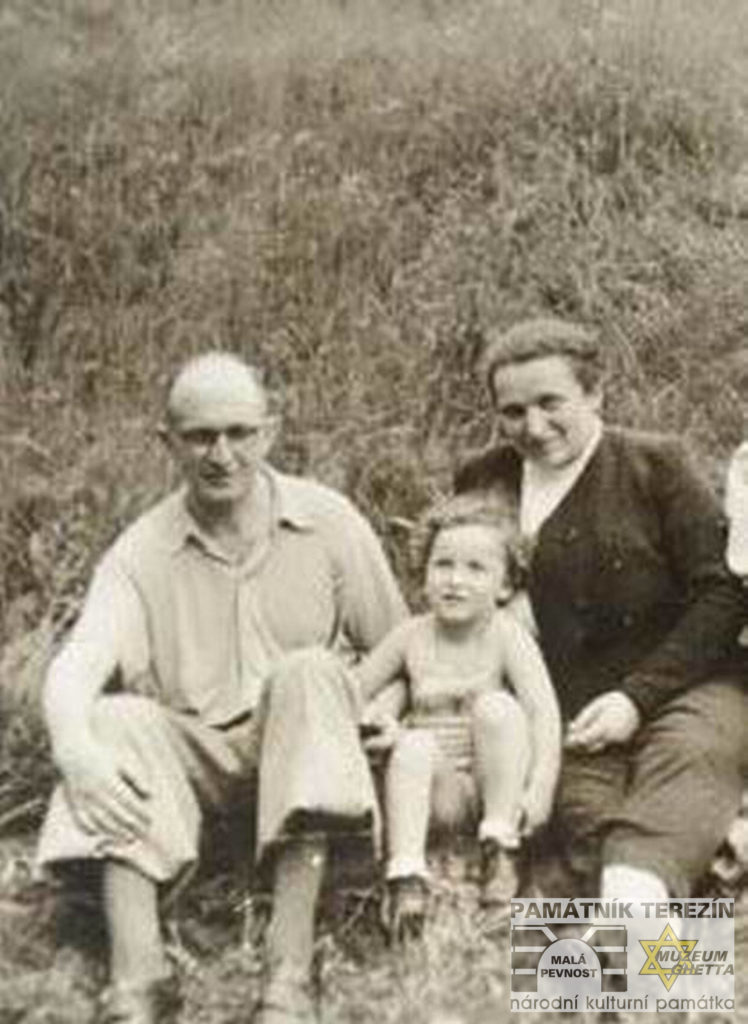
After the establishment of the Protectorate and with the gradually introduced reprisals against the Jewish population, Michaela´s father made use of his dexterity and enrolled in a training course in making wooden toys. In later years, he greatly benefited from his acquired wood-working skills both before his deportation to Terezín, when he had been sacked and served in various menial jobs, and during his subsequent internment in the Terezín Ghetto. This was preceded by a period of discriminatory measures that fell on the Lauscher family who were forced, among other things, to leave their modern apartment at Letná district and move to a worse flat in Prague´s Žižkov quarter, shared with other similarly afflicted Jewish families. Small Michaela´s most painful memory of that time was the loss of her beloved maid Rézinka; she had to leave the services of the Lauscher family who, as Jews, were no longer allowed to employ her. The girl was also forbidden to visit the playground where she used to play with her non-Jewish friends.
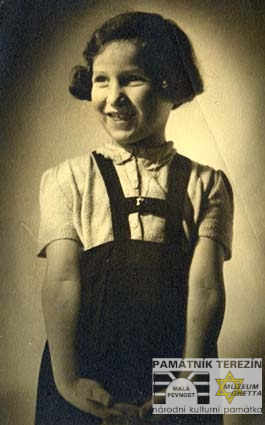
The Lauscher family received their call to report for transport Ck to the Terezín Ghetto in December 1942. While the parents were trying to prepare the family for the harsh conditions in the camp, their nearly six-year old girl was looking forward to her new pals and also, unfortunately in vain, to meeting her granny and grandpa who had been deported earlier. In her small backpack Michaela brought to Terezín not only the basic necessities but also her dog Pluto, a wooden toy handmade by her father for her fifth birthday. After their arrival in Terezín the wooden dog Pluto served as an example of Jiří Lauscher´s skillful hands, which qualified him for a place in a carpenter´s workshop. Thanks to his job the family was protected from the transports from Terezín to the East for a long time.
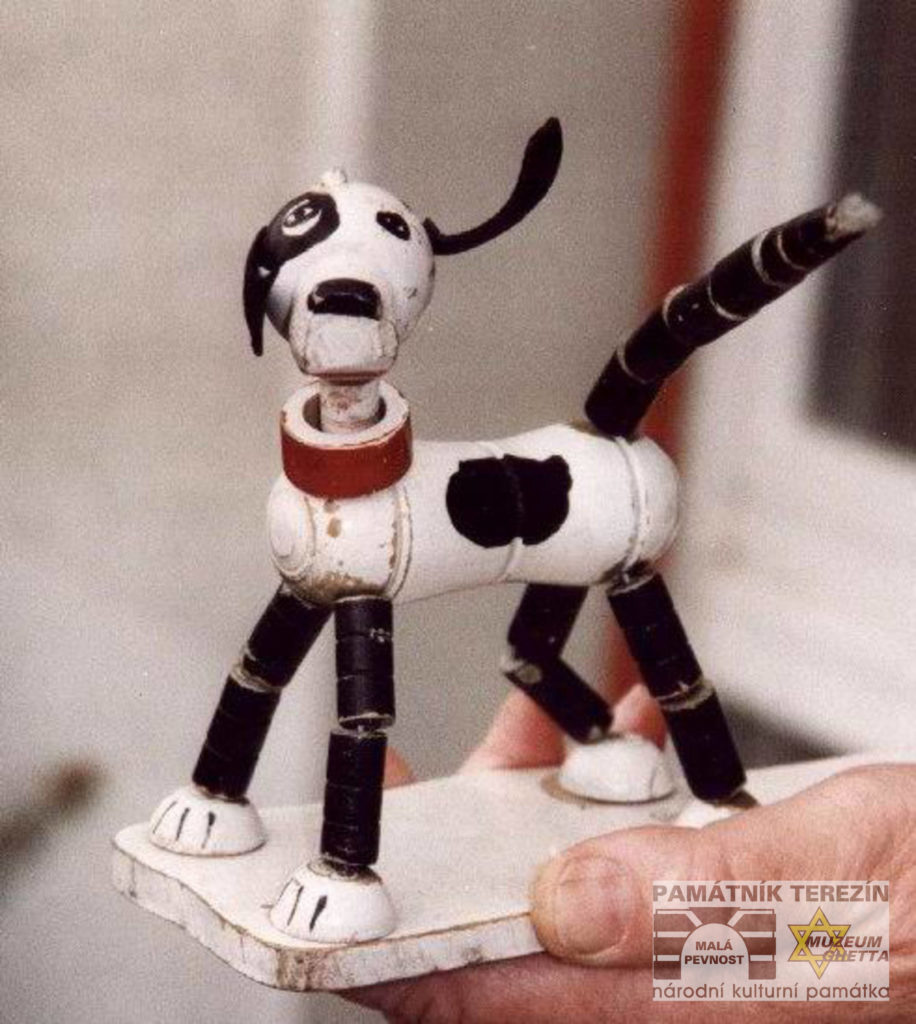
Shortly after her arrival in Terezín Michaela lived for more than a year separated from her parents. First, she was placed in a children´s home where she contracted several serious diseases at a time and had to be hospitalized in the infectious diseases ward of the camp hospital. Due to a shortage of medicaments the treatment of patients proved to be considerably complicated and protracted. Only several months after the small patient had been moved to a convalescent ward, her mother Irma was allowed to visit her regularly, and during the visits she managed to give her daughter and other sick children clandestine school lessons. After her release from hospital in the spring of 1944 Michaela lived with her mother in an attic of a Terezín house, and during the day she went to a children´s home. Her daily program proceeded under the guidance of local educators, including, among other subjects, clandestine lessons that gave the curious Michaela a wealth of new knowledge. In Terezín, Michaela also visited cultural events, such as the children´s opera Brundibár or a performance of Karafiát´s children´s story “The Little Bugs”. The poverty of the starving elderly inmates, one of the most tragic images of the camp life, made an indelible mark on Michaela´s memory.
When, in the fall of 1944, her father received a call to report for one of the transports, he miraculously escaped deportation. As a result, the three-member family survived the war in the Terezín Ghetto until its liberation. Before starting her school attendance in September 1945, Michaela spent the summer months at a chateau in Kamenice, where – thanks to Přemysl Pitter and his ”Operation Chateaux“ – children from concentration and detention camps could recover and gather new strength. Once again, her mother served as a teacher in the chateau in an effort to help the recuperating children catch up with their lost school years during the summer vacations.
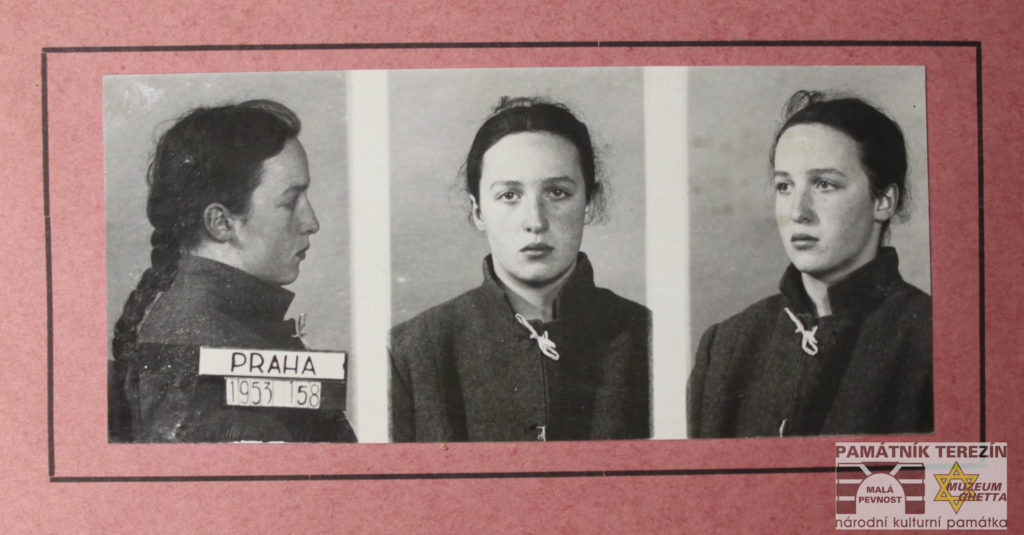
Sadly enough, after the Nazi regime´s reprisals suffered by the Lauschers there were more in store for the family in the postwar era. In 1953, following the political trials headed by Rudolf Slánský, the Lauschers decided to leave for Israel. Since their application for emigration had been rejected, they tried to leave communist Czechoslovakia illegally. However, they were captured when crossing the border, the parents were later sentenced to prison terms and Michaela was in danger of being committed to a youth custody center. The parents´ prison terms were eventually shortened by an amnesty declared by President Antonín Zápotocký; as a result, after a six-month imprisonment Michaela did not end up in a youth custody center. Another collateral form of punishment after the return from prison was the loss of the family´s apartment and Michaela´s expulsion from her high school. The 17-year girl was temporarily accommodated with friends and finished her secondary school education at an evening school in a company called Potravinoprojekt where she worked during the day as a draftswoman. Having passed her school-leaving exam, she sought to enroll in the Faculty of Natural Sciences of the Charles University; even though her school results were excellent she was eventually admitted only after an appeal and many administrative obstacles. After completing her university studies, she was employed in 1960 in the Institute for Nutrition Research (later renamed IKEM), got married and founded her own family.
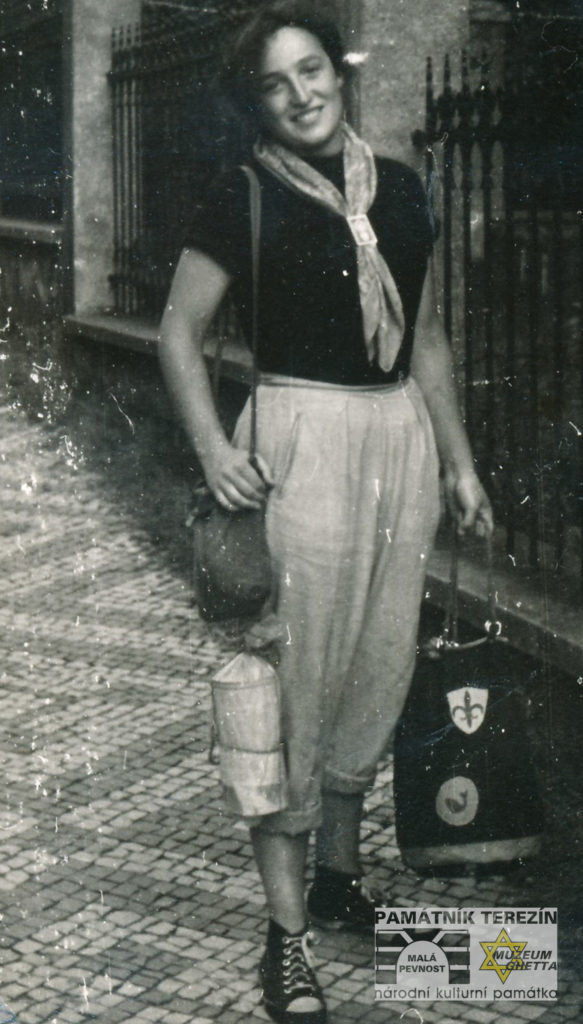
Michaela´s parents went out of their way to commemorate the wartime hardships and suffering of Jews. They kept collecting documents primarily about Terezín, and – starting in the 1960s – they established contacts with like-minded people abroad, accompanying groups of foreign visitors to Terezín as Holocaust survivors. Many of the visitors came from the Federal Republic of Germany and the German Democratic Republic, which greatly upset and worried Michaela, and for as long as twenty years after the war she refused to speak German. It was only in later years that she overcame her hostility to everything German, and just like her parents she became actively engaged in the process of reconciliation and fight against racial hatred. For many years now, Michaela Vidláková has been an active member of several organizations, representing the Jewish Community in Prague, working in the Committee of the Terezín Initiative, associating former Jewish inmates, and other agencies. First and foremost, she is an energetic Holocaust survivor who shares her life story with the young generations in the Czech Republic and abroad.
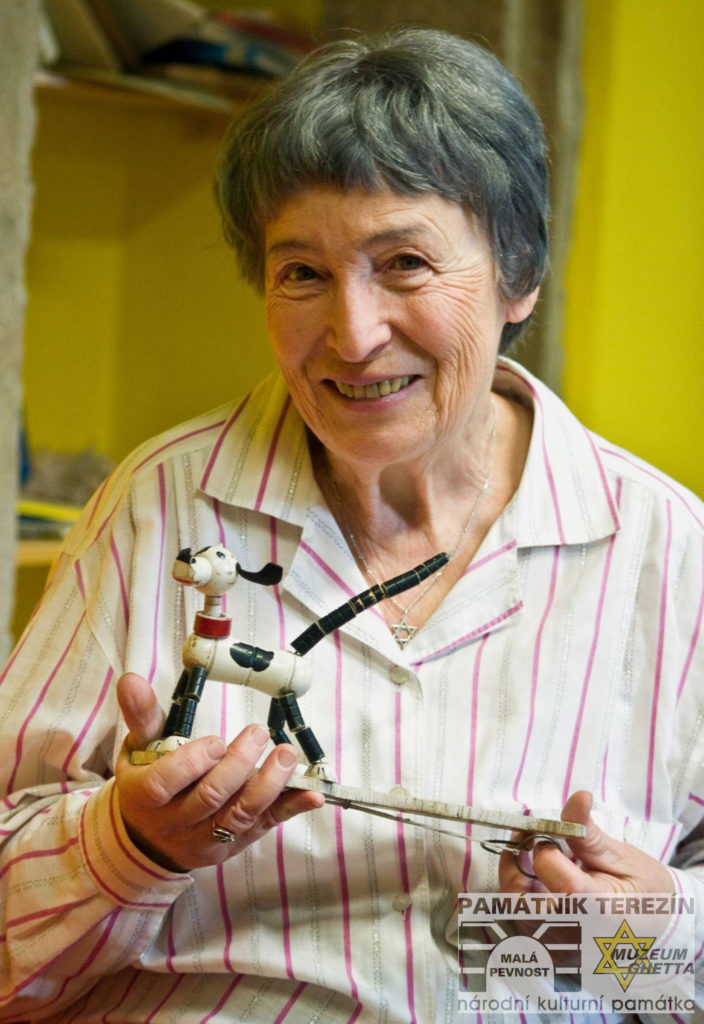
Su


